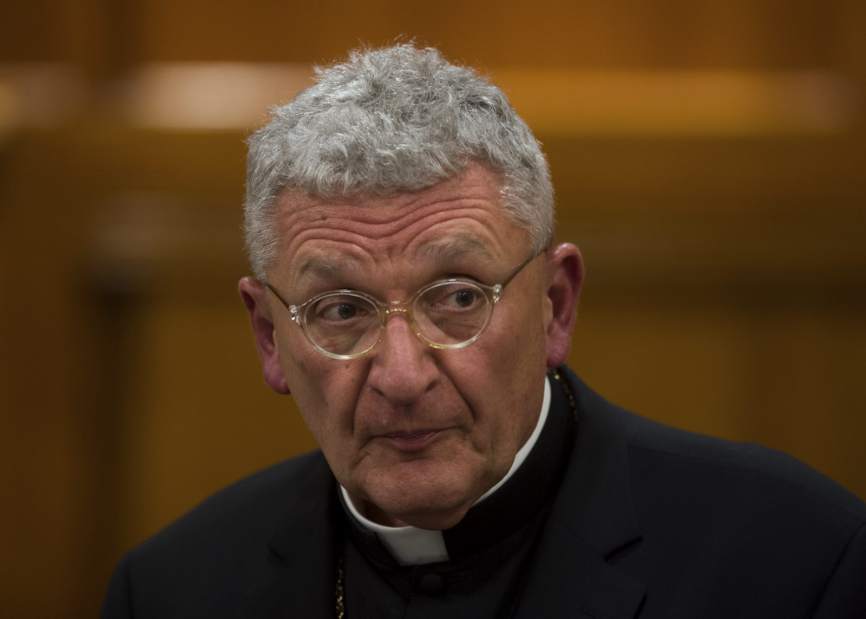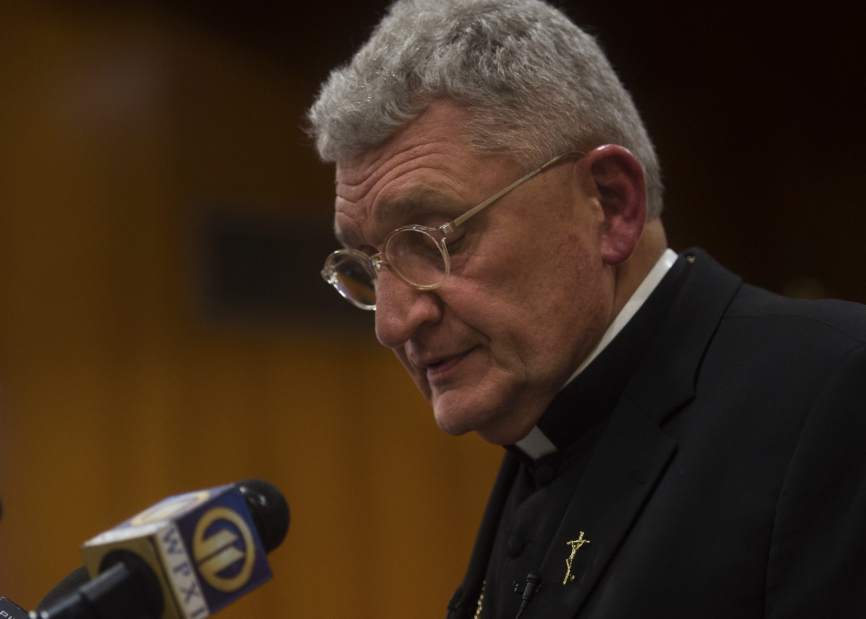Pittsburgh Bishop Zubik apologizes for abuse in diocese, denies cover-up
Diocese of Pittsburgh Bishop David Zubik said neither he nor his predecessor, now-Cardinal Donald Wuerl, tried to cover up decades of child sexual abuse by clergymen detailed in a scathing grand jury report released Tuesday.
The grand jury identified 90 alleged offenders in the Pittsburgh diocese, which includes parishes in Allegheny, Beaver, Butler, Greene, Lawrence and Washington counties. Eight of their names were redacted and an additional nine priests were identified only by a number.
The grand jury’s report highlighted three examples of what it called institutional failure involving three priests: Ernest Paone, George Zirwas and Richard Zula.
The examples “provide a window into the conduct of past Pennsylvania bishops and the crimes they permitted to occur on their watch,” the report said.
“There was no cover up going on,” Zubik said at a news conference following the report’s release.
Zubik, however, apologized for the years of abuse and inaction by the Catholic Church.
“In the name of the Church of Pittsburgh, and in my own name, and in the name of my predecessors, we are sorry,” he said. “I am sorry.”
Zubik said details in the report disgusted him.
“No one who has read it can be unaffected,” he said. “Some are affected because they are victims of child sexual abuse, and the release of this report either will help them to heal or will reopen wounds they have worked hard to heal.”
Zubik said others who figure to be affected include parents who can empathize with the pain of the victims’ parents and those who feel betrayed by the church.
“I do, too,” he said.
Among allegations regarding the Pittsburgh diocese, the report said Zirwas and Zula were part of a “ring of predatory priests … who shared intelligence or information regarding victims as well as exchanging the victims amongst themselves (and) also manufactured child pornography on diocesan property.”
“This group of priests used whips, violence and sadism in raping their victims,” the report said.
In one case, the report said Zirwas, Zula and two other priests took a boy identified as George to the rectory of a Munhall parish and asked the him to stand on a bed and remove his clothes as they discussed the image of Christ on the cross. Then they took Polaroid pictures of the boy. The alleged victim reported that the Polaroids were added to a collection of similar photos of other teenage boys.
The alleged victim said the ring of predatory priests gave gifts to boys including gold cross necklaces.
“They were a visible designation that these children were victims of sexual abuse. They were a signal to other predators that the children had been desensitized to sexual abuse and were optimal targets for further victimization,” the grand jury wrote.
Zubik said that he and his predecessors did what they thought was right at the time with the information they had.
The report refers to confidential memos between Zubik and Wuerl in the wake of past allegations.
“The grand jury noted that this process showed no concern for public safety or the victims of child sexual abuse,” according to the report.
Zubik said the diocese previously relied on advice from treatment centers on whether accused clergy members were fit to continue serving.
He offered to personally meet with any victims of abuse and apologize in person and on behalf of the church. He said an apology is an important step, but “is not enough.”
“Ever since I first met victims of clergy child sexual abuse in 1988,” Zubik said, “I have seen the immense pain that this crime causes to its victims, to their loved ones and to the heart of Jesus.”
Data released by the diocese shows 11 alleged incidents of abuse occurred since 2000, down from 16 in the 1990s, 82 in the 1980s, 62 in the 1970s, 60 in the 1960s, 37 in the 1950s and four in the 1940s.
“The Diocese of Pittsburgh today is not the church that is described in the grand jury report,” Zubik said, noting that he wants to show that “we have learned from the past.”
Megan Guza is a Tribune-Review staff writer. You can contact Megan at 412-380-8519, mguza@tribweb.com or via Twitter @meganguzaTrib.




